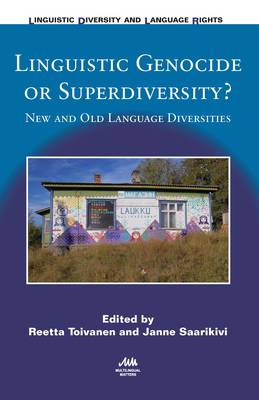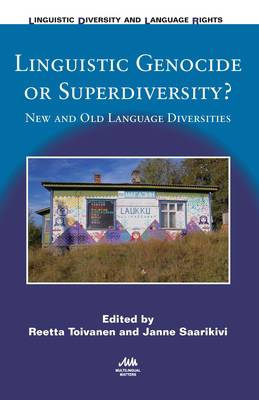
- Retrait gratuit dans votre magasin Club
- 7.000.000 titres dans notre catalogue
- Payer en toute sécurité
- Toujours un magasin près de chez vous
- Retrait gratuit dans votre magasin Club
- 7.000.0000 titres dans notre catalogue
- Payer en toute sécurité
- Toujours un magasin près de chez vous
Linguistic Genocide or Superdiversity?
New and Old Language Diversities
Description
Are we facing an immense wave of language death or a period of remarkable new linguistic variation? Or both? This book answers this question by analysing studies of language endangerment and loss along with those of language change, revitalization and diversity. Using case studies from Russia and the EU, the authors compare historical language variation to that of the present day, arguing that accelerated language extinction can be considered a result of colonization, modernization and globalization, but so too can many new creoles, intertwined and mixed languages, new ethnic identities, new groups of urban dwellers or migrant groups, all with their own distinct cultural traits. The book therefore surmises that the linguistic heritage of today is simultaneously more endangered and more diverse than ever before.
Spécifications
Parties prenantes
- Editeur:
Contenu
- Nombre de pages :
- 376
- Langue:
- Anglais
- Collection :
- Tome:
- n° 14
Caractéristiques
- EAN:
- 9781783096053
- Date de parution :
- 26-07-16
- Format:
- Livre relié
- Format numérique:
- Genaaid
- Dimensions :
- 155 mm x 236 mm
- Poids :
- 748 g

Les avis
Nous publions uniquement les avis qui respectent les conditions requises. Consultez nos conditions pour les avis.





